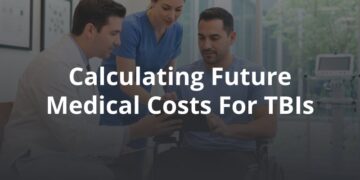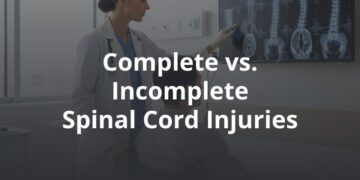Electronic logging devices (ELDs) automatically record a commercial driver’s hours of service, miles driven, and engine diagnostics. While ELDs are primarily record-keeping devices, they can make commercial vehicle transportation safer for drivers and the industry more transparent.
Various mandates have been implemented within the past few years to increase the prevalence of this technology on the road, but starting December 16, 2019, the Federal Motor Carrier Safety Administration (FMCSA) will require all carriers and drivers who keep records of duty status to use ELDs, with a few exemptions.
This affects everyone on the road. Commercial vehicle crashes take an immense toll on those involved, often resulting in extensive damages, permanent injuries, and fatalities. Establishing fault for accidents is often complicated by motor carriers refusing to take responsibility for negligence or other mistakes. Here are two major ways ELDs could reduce accidents like these.
ELDs Increase Accountability for Unsafe Driving
Driver negligence is the leading cause of commercial vehicle accidents. ELD safety dashboards can keep drivers more aware of the road and of their own driving habits.
While ELDs are not required by FMCSA regulations to capture data relating to speed, braking, and steering, there are models that help identify unsafe driving behaviors such as speeding and sudden acceleration or deceleration. This allows the motor carrier to review the records and take appropriate action to censure and educate risky drivers. Everyone on the road benefits from unsafe drivers facing accountability and correction.
ELDs Decrease Distractions
When you don’t know where you’re going, it’s easy to get distracted from the road while trying to find your way. ELDs are often equipped with GPS navigation and fleet-optimized routing technology that helps drivers plan and follow more efficient routes, decreasing distraction and uncertainty.
When Are ELDs Not Safer?
As with many safety-related technological advancements, user error can cancel out the benefits. ELDs have helped drivers adhere to the rigid Hours of Service rules (HOS), but an increased pressure to meet those rules can unfortunately incentivize speeding and other unsafe driving behaviors.
The accountability for HOS rule compliance also results in drivers attempting to persevere through fatigue to finish long shifts of up to 14 hours. According to the National Safety Council, you are three times more likely to be involved in a car crash if you are fatigued. Commercial truck drivers who often endure long shifts are some of the most fatigued drivers on the road.
When to Consult a Truck Accident Lawyer
Even with improving regulations and new technology, devastating commercial vehicle crashes still occur. In the aftermath of such an accident, it can be difficult to gain your bearings. You may not know how to proceed with medical treatment or what to say when you contact your insurance company. You may rightfully fear that the motor carrier will be reluctant to admit fault and take responsibility.
But with the best truck accident lawyers in your corner, you can navigate the complicated situation to secure the best possible outcome.
We handle complex cases involving driver error, vehicle malfunction, reckless and distracted driving, driver fatigue and distress, substance abuse, and employer negligence. Resolving an accident of this nature requires deftly coordinating and communicating with drivers, insurance providers, and the companies they represent. It requires obtaining documents and data to bolster your case.
A truck accident lawyer will not only fight for the best solution for you, but also provide support in a time of emotional distress and uncertainty. Even if you don’t believe your case requires the services of a truck accident lawyer, a free, no-pressure evaluation can help you determine the best path forward. Our goal is to help victims of commercial vehicle accidents feel confident and resolve any confusion or uncertainty about how to proceed.
If you would like to schedule a no-cost, no-commitment consultation to discuss your accident, contact us today.







